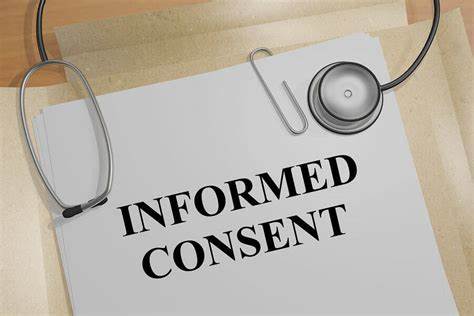Informed Consent: An Overview
Informed consent is a fundamental concept in healthcare that ensures patients have the autonomy to make decisions about their medical treatment or procedures. It involves providing patients with clear, detailed information about their health condition, the proposed treatment or procedure, possible risks, benefits, and alternative options. Only after fully understanding this information can the patient voluntarily agree to proceed with the treatment.
Key Aspects of Informed Consent
- Clear Information: The healthcare provider must communicate all relevant details regarding the procedure or treatment, including what will happen, why it’s necessary, and what the expected outcomes are. This ensures the patient understands what they are agreeing to.
- Understanding: It’s not enough for the provider to simply give information; they must ensure that the patient has understood it. This may involve using simple language, answering questions, and checking that the patient comprehends the risks and benefits of the treatment.
- Voluntary Decision: Informed consent is valid only when it is given freely and without any form of coercion or undue pressure. The patient must feel that they have the option to say no without facing any negative consequences.
- Competence: The individual providing consent must be mentally capable of understanding the information and making a decision. In cases where the patient is a minor or incapacitated, a guardian or legal representative can provide consent on their behalf.
- Written Consent: While verbal consent can be valid in some cases, many procedures—especially high-risk ones—require written consent.
- Right to Withdraw: At any point, the patient has the right to withdraw their consent, even if the treatment has already started. This ensures that the patient remains in control of their healthcare decisions at all times.
Why is Informed Consent Important?
- Patient Autonomy: It recognizes and respects the patient’s right to make decisions regarding their health and well-being. It empowers patients by providing them the information needed to make educated choices.
- Ethical Obligation: Healthcare professionals have an ethical duty to provide their patients with the information they need to make informed choices. This aligns with the ethical principles of respect, trust, and patient care.
Exceptions to Informed Consent
While informed consent is a critical practice, there are certain situations where it may not be required:
- Emergency Situations: If a patient is unable to provide consent (e.g., unconscious or incapacitated) and immediate medical intervention is necessary to save their life, healthcare providers may proceed without explicit consent.
- Incompetence: If the patient is not capable of understanding the information—due to mental illness, cognitive disabilities, or other factors—then consent may be provided by a legally authorized representative, such as a family member or legal guardian.
- Minors: For patients under the age of 18, consent is usually provided by a parent or legal guardian unless the minor is emancipated or in certain legal situations where they can consent for themselves (e.g., sexual health services in some regions).
Challenges in Informed Consent
- Complex Medical Language: Medical terminology can be difficult for patients to understand. It’s important for healthcare providers to avoid jargon and communicate in a clear and straightforward way.
- Cultural and Language Barriers: Patients from different cultural backgrounds or those who speak different languages may not fully understand the information. This requires healthcare providers to use interpreters or culturally sensitive communication practices to ensure the patient is well-informed.
- Emotional Impact: Some patients may be overwhelmed or frightened by the information, especially if they are dealing with serious health issues. Healthcare providers must be sensitive to the emotional state of the patient and provide support during the decision-making process.
Conclusion
Informed consent is a cornerstone of modern healthcare, ensuring that patients are active participants in their treatment decisions. It is based on providing clear, understandable, and complete information, allowing the patient to make a voluntary, informed choice. Respecting patient autonomy, protecting both parties legally, and upholding ethical standards are key reasons why informed consent is essential in medical practice.
